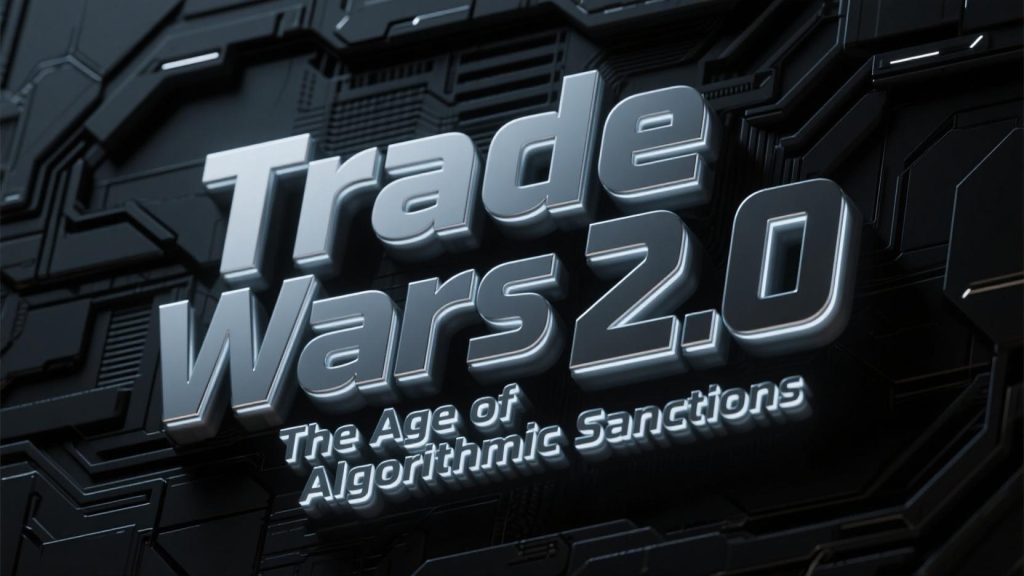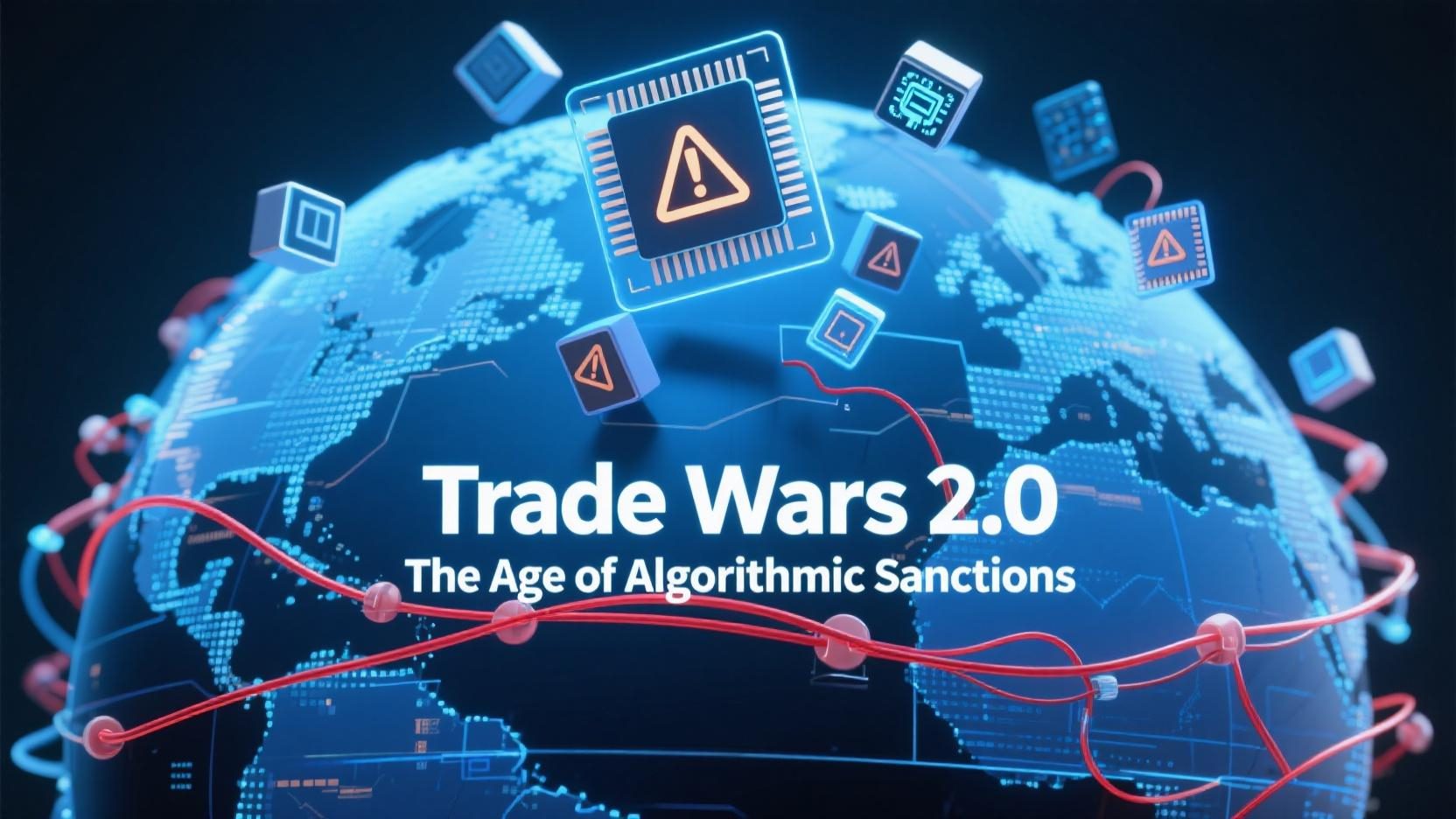The era of traditional trade wars — dominated by tariff hikes, embargoes, and naval blockades — is fading. In its place emerges a new paradigm: Trade Wars 2.0, waged not by fleets or tariffs, but by algorithms, data silos, and digital embargoes. Here, artificial intelligence (AI), quantum encryption, and global digital regulations redefine economic dominance.
The New Weapons
-
⚡️ Algorithmic Sanctions: AI-driven platforms instantly block access to critical services — from global payments to supply chain platforms — with precision. In seconds, billions of dollars can be rendered untouchable.
-
🔐 Digital Export Controls: Nations weaponize access to critical technologies. The U.S. restrictions on advanced chips for AI and supercomputing are a harbinger of this trend.
-
☁️ Data Embargoes: Sovereign data localization laws create digital fortresses. Companies relying on global data flows can find themselves barred from certain markets overnight.
The New Battleground
Trade disputes are no longer limited to steel, oil, or electronics:
-
Information Services: Will AI service access become the new commodity?
-
Algorithmic Gatekeeping: Social platforms can be leveraged as tools for economic warfare — throttling information, blacklisting suppliers, or elevating competitors.
-
Blockchain Sanctions: Smart contract-based compliance can enforce global trade policies instantly, locking or unlocking critical liquidity.
Case Studies
-
🇺🇸 USA vs. Huawei: Export controls on chips decimated Huawei’s global smartphone market and inspired a race for chip sovereignty.
-
🇨🇳 China’s Data Firewall: Created a global standard for digital sovereignty, forcing multinational firms to adapt or exit.
-
🇪🇺 EU’s AI Regulations: AI acts as both a shield and a spear for the EU, aligning economic and ethical standards across the digital marketplace.

The New Rules
-
Trust is Algorithmic: Trade alliances hinge upon data trustworthiness, AI verification, and digital encryption.
-
Control is Leverage: Nations controlling core digital infrastructure (5G, AI chips, cloud platforms) gain disproportionate economic and political influence.
-
Resilience is Survival: In this new order, fragmented supply chains are replaced by resilient ecosystems that can tolerate digital embargoes.
The Road Ahead
Trade Wars 2.0 mark a shift from blockaded ports and commodity quotas to silenced servers and throttled data pipelines. The stakes are higher, the actors more obscure, and the outcomes more unpredictable. Yet amid the turbulence lies a pivotal opportunity: nations and enterprises that invest in digital sovereignty, algorithmic resilience, and multi-cloud supply chains will shape the global economic order for the rest of the 21st century.








